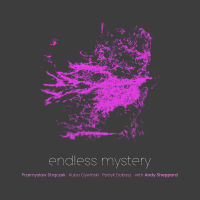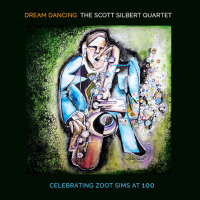Home » Jazz Articles » Louis Sclavis
Jazz Articles about Louis Sclavis
Louis Sclavis Atlas Trio: Sources

by Ian Patterson
Multi-reedist, composer and improviser Louis Sclavis' ninth release for ECM sees this eternally restless seeker of new sounds and textures heading once more into personally unchartered territory; this is the first time Sclavis has led a trio of clarinet, guitar and piano. In guitarist Gilles Coronado and pianist Benjamin Mouassy, Sclavis has recruited open-minded musicians with the technique, discipline and imagination necessary to give life to his sketches of musical ideas, where formal structure and free rein co-exist in such ...
Continue ReadingLouis Sclavis Atlas Trio: Sources

by John Kelman
It's not uncommon for artists to shake things up by changing personnel to explore roads previously untraveled, but few push themselves so relentlessly into new territory through revamped instrumentation as Louis Sclavis. Still, since coming to ECM with the auspicious Rouge (1992), the French clarinetist/saxophonist has always maintained continuity between recordings--cellist Vincent Courtois carried over from Dans La Nuit (2002) to Napoli's Walls (2003), and percussionist François Merville showing up on L'imparfait des langues (2007) and Lost Along the Way ...
Continue ReadingLouis Sclavis - Craig Taborn - Tom Rainey: Eldorado Trio

by AAJ Italy Staff
Bello trovare un musicista di grande talento come Louis Sclavis alle prese con partner come Taborn e Rainey: non che il clarinettista sia artista poco coraggioso, intendiamoci [nella sua carriera ha anzi affrontato i contesti più vari], ma certamente le prove a proprio nome rispondono a logiche espressive ben definite, nelle quali lo spazio per elementi realmente spiazzanti è piuttosto ridotto. Questo Eldorado Trio, registrato sia in studio che dal vivo dalla Clean Feed, si muove come un triangolo dalla ...
Continue ReadingLouis Sclavis: Lost On The Way

by Jeff Dayton-Johnson
Clash of the jazz titans! Miles Davis famously remarked that the late Eric Dolphy played “like someone was standing on his feet." An uncharacteristically bad bit of timing for Davis: his comments appeared in print just after the tragically early death of the great multi-reedsman in 1964. Many years later, it is possible both to find Davis's comment kind of true and pretty funny, while still loving Dolphy's music.Louis Sclavis has subtly, and probably unwittingly, bridged the divide ...
Continue ReadingLouis Sclavis: Lost on the Way

by Dan McClenaghan
French multi-reedist Louis Sclavis has involved himself in many modes of musical expression during a career which has spanned over 30 years, from free to folk to Baroque, and into the contemporary realm. His jazz perspective is European, which perhaps means having something of a chamber approach, and not much rooting in the blues--not unusual for an artist recording on the German-based ECM label.On Lost on the Way, Sclavis and his quintet turn to the Greek writer Homer ...
Continue ReadingLouis Sclavis: Lost on the Way

by John Kelman
Over the course eight albums, French clarinetist/saxophonist Louis Sclavis has carved his own niche on ECM. Every album possesses a different complexion--from the acoustic free play of Acoustic Quartet (1994) and aggressively open-ended variations of composer Jean-Phillip Rameau's work on Les Violences de Rameau (1996) to the more structured soundtrack for Charles Vanel's 1929 film, Dans La Nuit (2002) and outstanding writing on the oftentimes knotty but always captivating L'affrontement des prétendants (2001). As different as each project is--including 2007's ...
Continue ReadingLouis Sclavis: Lost on the Way

by AAJ Italy Staff
E' sempre un piacere mettere nel lettore un CD di Louis Sclavis. Anche a dispetto, come in questo caso, di un titolo fuorviante (Lost on the Way). Perché il clarinettista di Lione non è certo musicista che si perde per strada. La sua musica ha sempre una coerenza impeccabile, un senso della narrazione non comune. L'idea di album che non è semplice collezione di singoli brani, ma una sorta di suite, con un suo filo conduttore. Concept Album, si sarebbe ...
Continue Reading















